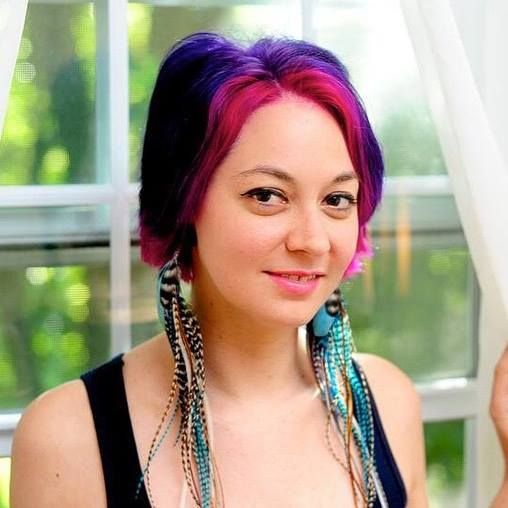I Was an Abuse Counselor—in an Abusive Relationship
Night after night, I went home to a partner who was everything I told my clients to look out for.

I've always wanted to help people. That's how I ended up as a domestic violence counselor. They were struggling, they were damaged. They were different from me.
Except they weren't.
My job began with a 20-hour training course about the dynamics of abuse. I sat down, ready to learn what I needed to help the clients I was going to counsel, and picked up the "Power and Control Wheel" educational graphic in front of me. The wheel outlines the many different ways that abusive behavior can manifest aside from physical violence. My eyes danced over phrases like "calling her names," "making her think she's crazy," and "controlling what she does and where she goes." My stomach fluttered.
The words went blurry. I excused myself, walked to the nearest bathroom, and immediately vomited into the toilet. Sitting on the tile floor with shaking hands, the control wheel spun in my head. There, staring back at me in photocopied black and white, was the picture of my own relationship.
Too ashamed to tell anyone my big revelation, and worried I would lose my new job if I did, I kept it to myself.
Day after day, I walked into work and counseled women about what they had been through, how to identify red flags, and what healthy relationship dynamics were really like. Night after night, I went home to a partner who was everything I told my clients to look out for. "I won't be seen in public with you if you wear that," my boyfriend would growl. "You can't meet my family. They won't approve of someone like you. You're not good enough," he'd go on. "You're crazy. No one else is going to want a girl like you. Hell, I don't even want you," he'd scream.
I threw all my efforts into those daytime hours. I became the perfect counselor to help push down my own pain. My clients trusted me, saw me as some sort of refuge, a lighthouse of strength and resolve. I was lying to their faces.
Get exclusive access to fashion and beauty trends, hot-off-the-press celebrity news, and more.
And I was good at it, too. I built wonderful relationships with these women. They opened up before my eyes, inspiring me with their own examples of bravery and resilience. I looked forward to going to work every day to catch up with them. I'd find out how their weeks had gone, note their progress to them, listen to the revelations they'd had.
Together, we'd recite affirmations. To a client who felt like she'd deserved the abuse, I said, "You deserve to be treated well." Yeah, I thought, I do. "It's not okay for someone to say those things for you," I assured another. No, it's not okay, I assured myself.
I found myself thinking: If they could do it—leave their abuser, believe that they have value, learn to love themselves—then I could do it, too. I used the same words I had given as a script to so many of my clients. "I'm sorry," I said to him. "I deserve better than what you can give me."
There was one way my boyfriend did not fit the textbook. In most cases, the abuser may not be willing to let their partner go, and the victim may find herself in real physical danger. For me, my abuser let me walk out. But the fact that he didn't try to stop me or even seem to care almost seemed to hurt worse—it was evidence of how little he thought about me and how easy it was for him to treat me like I was worthless.
I spent a long time afterward knowing that I deserved better than him while simultaneously hoping he'd call and realize what a mistake he'd made by letting me go. Thankfully, that call never came. What his abuse had done was convince me that I wasn't worth more than him...but what my clients helped me understand is that I absolutely am.
That was 10 years ago, and I'm still working on being a strong person. I've managed to avoid entering another abusive relationship, thanks to learning how to recognize red flags. Eventually I was able to enter into a marriage with someone who treats me as an equal and respects me in ways I never knew were possible.
I now work from home, writing and caring for our daughter, but I am so grateful for my years as a counselor. It didn't just pay the bills and allow me to help people—it allowed me to help me.
Follow Marie Claire on Instagram for the latest celeb news, pretty pics, funny stuff, and an insider POV.
Britni de la Cretaz is a freelance writer and baseball enthusiast living in Boston. Follow her on Twitter at @britnidlc.
